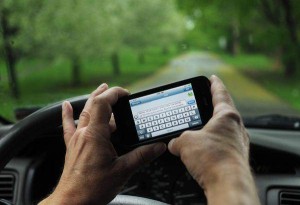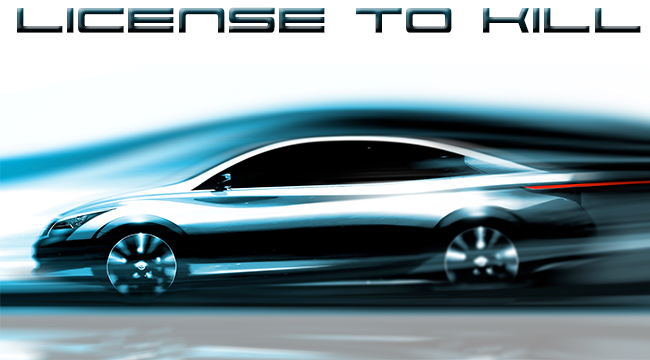 It’s something teens hear all the time as we pull out of the driveway: “Be safe. Don’t go above 65, and don’t touch your phone.” Parents should follow their own advice.
It’s something teens hear all the time as we pull out of the driveway: “Be safe. Don’t go above 65, and don’t touch your phone.” Parents should follow their own advice.
Although it might seem harmless while stuck in traffic or at a stoplight, texting while driving is illegal as long as you are behind the wheel, regardless of your speed.
In the state of California, texting while driving has been banned since 2009.
On top of the legal repercussions, “texting while driving is considered the most dangerous form of distraction because it involves the eyes, the hands and the mind,” said Larry Copeland in his article “Texting in Traffic: Adults Worse than Teens.”
Known for their reckless behavior and technological tendencies, teens are often the target for blame in this area.
However, since having received my license, I’ve been noticing that adults are just as involved in texting while driving (if not more so) than teens.
There is evidence to back up these anecdotal observations:
“Nearly half of adults surveyed, 49 percent, said they text and drive—even though nearly all of them say they know the habit is dangerous,” said Hayley Tsukayama in her Washington Post article “Adults More Likely to Text and Drive than Teens, Study Says.”
Just for comparison, AT&T reported in the same survey that Tsukayama cited that only 43 percent of teenagers text while driving. Even though it’s a six percent difference, teens shouldn’t be scapegoats when it comes to texting and driving.
Along with these results, another statistic was released which shows the treacherous trend gaining momentum: six out of 10 commuters said they didn’t text and drive three years ago.
Most teens are more tech-savvy than their parents, and their preferred mode of communication is usually texting.
However, the California ban is not limited to “texting” specifically, but rather “writing, sending, or reading text-based communication on an electronic wireless communications device, such as a cell phone, while driving a motor vehicle,” according to the California Department of Motor Vehicles (dmv.ca.gov).
This includes checking calendars, writing emails, and looking up directions.
Beyond simply reading messages, adults also were “substantially more likely than teens to have talked on their cell phones while driving,” said Mary Madden and Amanda Lenhart in a Pew study.
So why do drivers still engage in this practice?
More importantly, why do adults—our parents and role models—still choose to consciously give their emails higher priority than their attention to the road?
From an AT&T survey of about 1,000 adult (aged 18 and up) commuters, the most frequent justification (43 percent) for why the respondents texted and drove was “it’s a habit.”
Not from necessity, not for sake of communication, simply out of habit adults pick up their phone and jeopardize their own and others’ lives.
This habit could be broken so easily. 2.5 million Americans have already taken AT&T’s “It Can Wait” pledge, according to Josh Pastner’s “No Text Message is Worth Dying For, Drivers.”
Pastner also cites the National Safety Council to enforce the fact already known: texting while driving is dangerous. How dangerous? 23 times more dangerous, that is 23 times more likely to get into an accident.
I’m not pointing fingers; I’m not a teen rebelling against my authoritative figures.
My research stems from a genuine concern for the well being of everyone in the car and around us on the road.
When I’m in the passenger seat, I’m putting my trust and my life in the hands of the driver, so it’s more than slightly annoying when the driver uses his or her hands to juggle the phone, the wheel, and the lives of their passengers.
It’s scary. I find myself offering to write that text for my mom, or check the traffic for my dad because, regardless of their years of experience, I know that they’re only human and their reaction times are only so fast.
I know many adults feel the pressure of work the same way we feel the pressure of school, however, multitasking behind the wheel is not an effective way to diminish your workload.
A phone screen should not get in the way of your attention and put the lives of those around you at risk.
Experience Isn’t a License for Hazardous Behavior
November 11, 2013
Donate to The Fourth Estate
$50
$500
Contributed
Our Goal
Your donation will support the student journalists of Laguna Blanca School. Your contribution will allow us to purchase equipment and cover our annual website hosting costs.

































